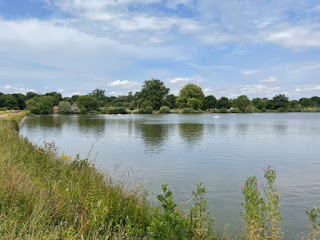When I finally come to write my magnum opus The History of National Trust Scones 1895-Present, I will define in some detail the seismic change - some would call it a revolution - that occurred during the years 2020-2022.
In the pre-COVID era, a National Trust scone that was not served on an actual ceramic plate caused emotional shockwaves. I well remember being served a cream tea on a paper plate in the cafeteria at Greenway and the absolute confusion that ensued. I don't think my MP actually ever raised it at Prime Minister's Questions but she should have done - that's how controversial it was.
But by 2020, when I finally made it to Stackpole for a scone after months of lockdown, I could have sent the takeaway box that it came in off to the Vatican and asked them to canonise it. If the cafe staff had handed that scone to me balanced on an old copy of Hello magazine, I'd probably have eaten it.
In short: COVID made takeaway scones acceptable.
Why am I telling you this? Well, if I had gone to Hatfield Forest in Essex in 2018, I would never have expected to find any scones. There's no cafeteria at Hatfield - just a serving counter. I would have been completely prepared to settle for a more traditionally portable baked item.
 |
| Ceci n'est pas une scone |
 |
| Bravely soldiering on with flapjack |
- Hatfield Forest is the best surviving example of a royal hunting forest
- It was named as such by Henry I around 1100
- Henry introduced fallow deer to the forest from Europe
- If you were caught poaching the royal deer, one of the punishments was to be sewn into a deerskin and hunted by dogs, which would probably put you off trying it
- The forest was owned by Robert the Bruce from 1304-6 but Edward I wanted to be King of Scotland so he confiscated it
- Hatfield Forest then passed through many aristocratic hands until it was given to Sir Richard Rich by Edward VI
- If you are a fan of Wolf Hall, you will recognise the name Richard Rich. He worked with Thomas Cromwell on the Dissolution of the Monasteries as well as on the Act of Supremacy, recognising Henry VIII as the Head of the Church in England
- It was then purchased by Jacob Houblon before ending up with a timber merchant - luckily a passionate conservationist called Sir Edward North Buxton stepped in and bought it before giving it to the National Trust
- Across the 900 acres today, around 3,500 species of living things can be found

No comments:
Post a Comment